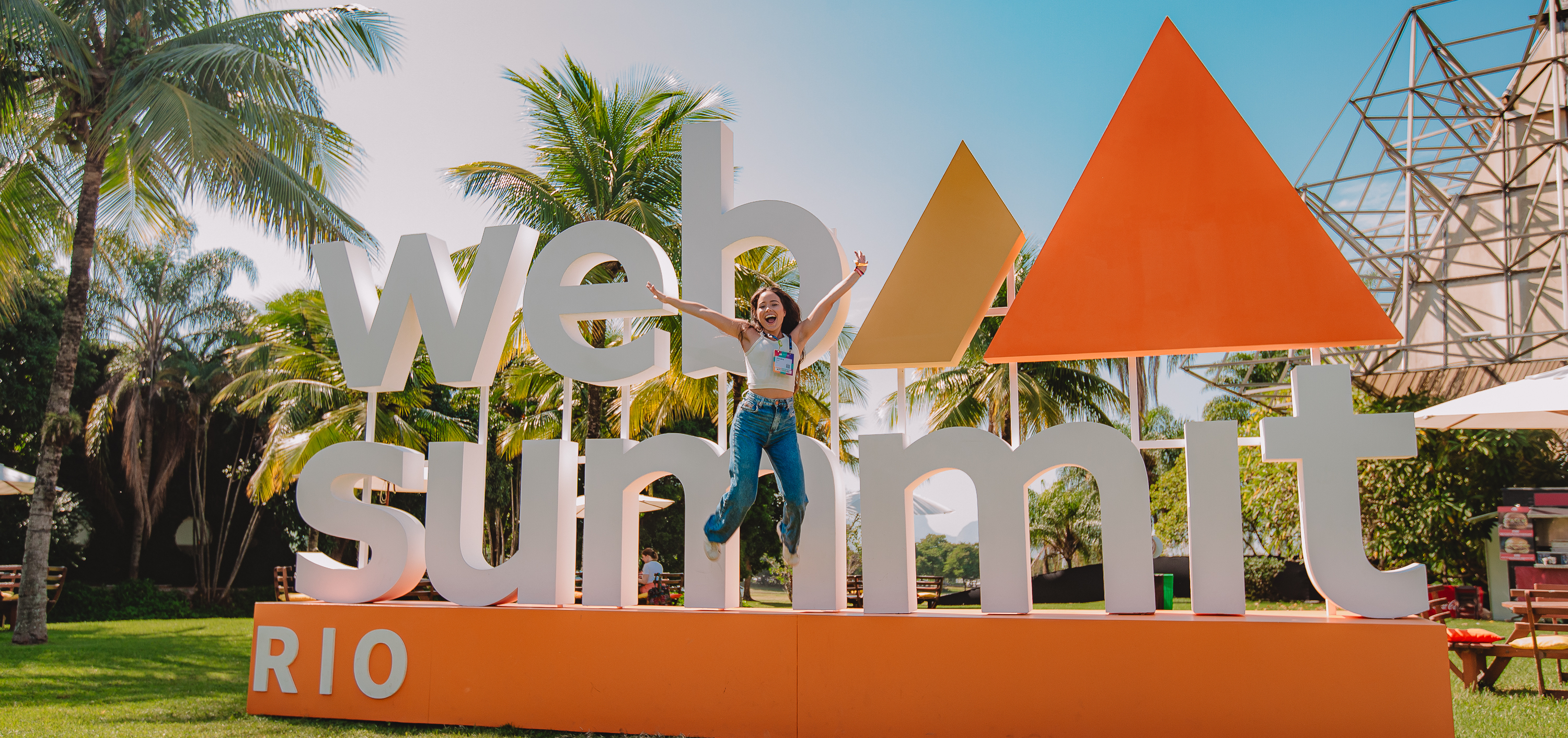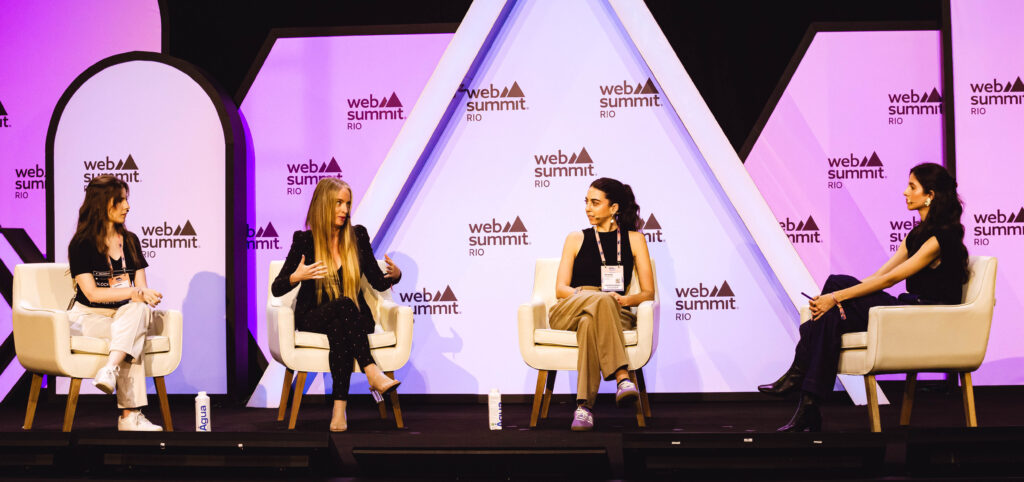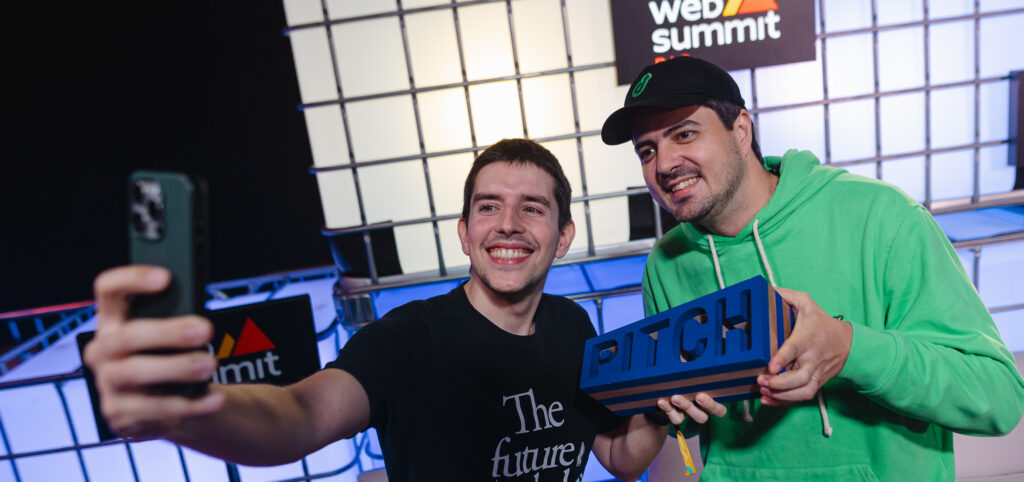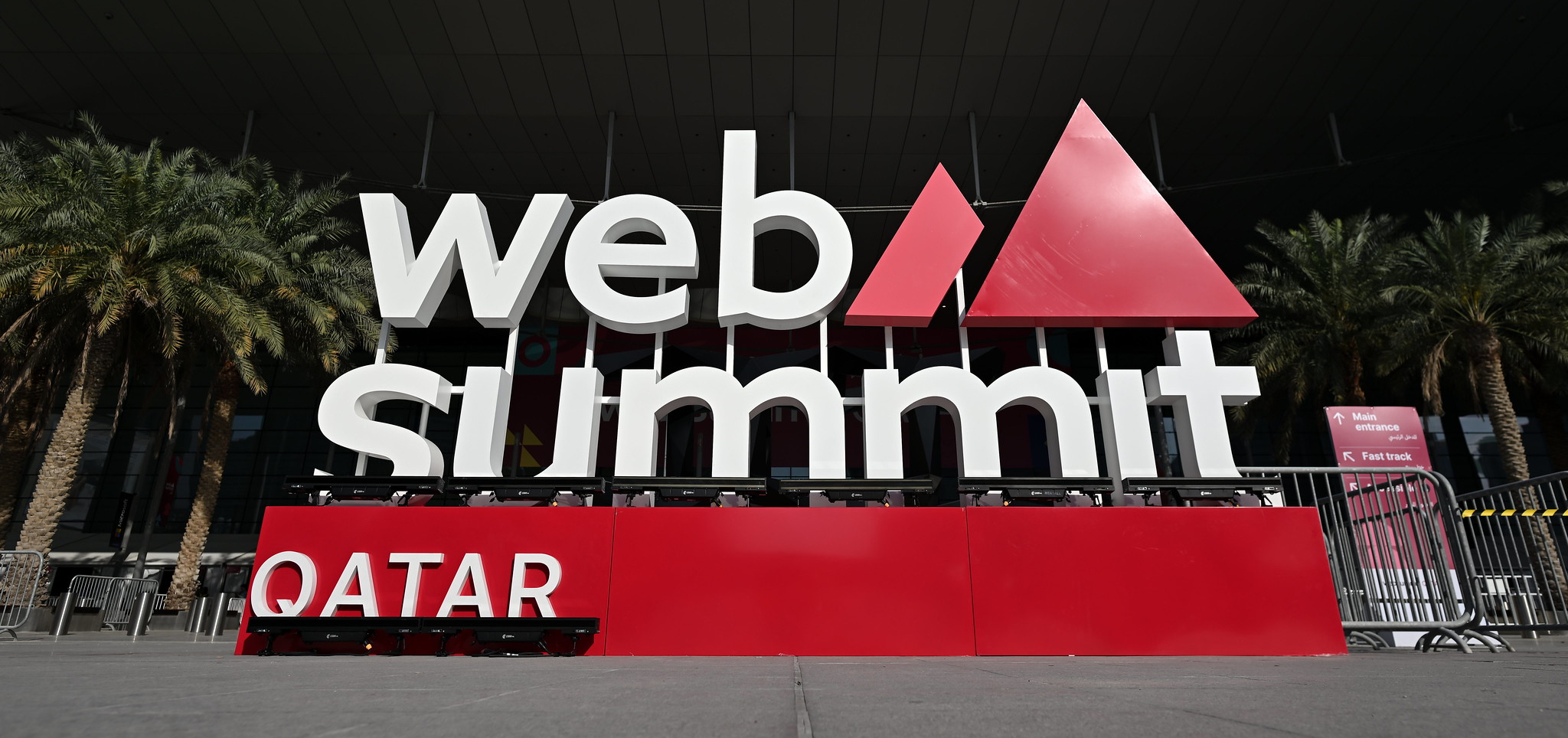
Here’s what you missed at Web Summit Rio 2024

Take a look at some of the highlights from Web Summit Rio 2024, where AI, climate, fintech and more took centre stage.
Record number of women-founded startups
It’s been an historic year for our second-ever Latin American event, which brought together a record number of women-founded startups, 45 percent, the highest proportion at any Web Summit event.
34,000-plus attendees from 102 countries were at Riocentro, making Web Summit Rio our fastest-growing event ever. The floor space at this year’s Brazilian showcase increased by 25 percent from last year, catering for the almost 13,000 additional attendees.
Bigger floor space means more partners, and this year we welcomed 175 of them – including Salesforce, Huawei, Grindr, IBM, SAP, Itaú and Udemy.
Trade delegations hailed from all corners of the world – including Angola, Austria, Estonia, Finland, Hong Kong and The Netherlands – to connect and explore global business opportunities.
Our Latin American event also welcomed 1,066 startups from 42 countries around the world, representing 31 industries.
Nearly 16 percent of startups attended through Web Summit’s Impact program, which showcases startups that align with the United Nations Sustainable Development Goals, including climate change, human rights, education and more.
Carbon removal, climate coverage and the future of the planet
How can society save the world’s rainforests? By resisting threats as best as possible… And by using drones. That’s what we learned from some of the climate talks at Web Summit Rio.
From Indigenous Youth Collective of Amazon Defenders’ Helena Gualinga, to Peter Prengaman, global climate and environmental news director of the Associated Press, experts shed light on the steps we can take to safeguard our planet.
“We have, throughout my lifetime, faced a lot of threats, particularly from oil companies,” said Indigenous Youth Collective of Amazon Defenders co-founder Helena Gualinga, speaking at Web Summit Rio.
Helena continued: “My work today is very much around: how do we protect the Amazon rainforest from extractivism, not just oil, but any kind of extractivism coming into our territories with extreme force, violating human rights, and, in general, being very destructive?”
When it comes to media coverage of climate change, focusing on solutions gives people hope, said global climate and environmental news director of the Associated Press, Peter Prengaman.
“When you can tell people ‘hey, here’s something that’s working and could help on a larger scale make the situation better’ … We actually see that readership goes up for those kinds of stories. People want the solutions – they don’t just want the doom and gloom,” said Peter.
“Climate change is the most capital-intensive problem in human history, other than the industrial revolution and world wars.”
Peter Fernandez, co-founder and CEO of Mombak
Last year, carbon capture firm Mombak inked a deal with Microsoft that represented one of the largest ever nature-based deals, targeting the removal of 1.5 million tonnes of carbon from the earth’s atmosphere.
Mombak co-founder and CEO Peter Fernandez thinks the Microsoft deal is “their single largest carbon removal offtake to date”, pledging that the company was going to be “the Saudi Aramco of carbon removal”.
At Web Summit Rio, the co-founder and CEO went on to say that “humanity’s single largest opportunity today to remove carbon from the atmosphere is by doing reforestation in Brazil, specifically in the Amazon.”
The CEO added: “I’ve actually come to understand that climate change is the most capital-intensive problem in human history, other than the industrial revolution and world wars. So that’s the kind of company that we’re building now, using everything that we learned from the tech industry about how to scale really fast and really ambitiously.”
Navigating adversity in the LatAm investment ecosystem
Investment and fundraising in Latin America came under focus at Web Summit Rio as VCs took to the stage.
The likes of Izabel Gallera and Laura Constantini, partners at Canary and Astella respectively, shared their insights on liquidity, representation and raising capital in the region. Elsewhere hiring came into focus.
“If you have a 70-percent male team, that’s not good enough. You can do a lot better, so hold yourself accountable and hire women.
Rafaela Frankenthal, co-founder and CEO of SafeSpace
Rafaela Frankenthal, co-founder and CEO of SafeSpace, has urged investors to work harder at finding women-founded projects and founders to support – and to be accountable for diversity levels.

From left: Debora Kantt, director of foresight and future at JPMorgan Chase & Co; Caroline Nunes, founder and chief product office at Infratoken; Rafaela Frankenthal, co-founder and CEO of SafeSpace; Ana Lankes, Latin America correspondent at The Economist. Image: Web Summit Rio (CC BY 2.0)
“If you’re an investor, invest in women. They exist. Look for them. Diversify your pipeline sourcing,” Rafaela said. “If you’re a founder, mentor women. Invite them to social events. Celebrate their achievements. Hire them.”
Rafaela added: “If you have a 70-percent male team, that’s not good enough. You can do a lot better, so hold yourself accountable and hire women. And, if you’re a leader working in a tech company, promote diversity and inclusion initiatives, and question decision-making processes and biases in hiring and promotion.”
Rafaela discussed her own struggles to secure funding as a woman founder: “Drawing from my experience as a tech founder, the biggest obstacle that women face today is access to capital. It’s really hard to build innovative technology without access to capital, and the VC industry today is dominated by men.”
“There are biases everywhere in the decision-making processes – especially when we’re speaking of early-stage, where most of the decisions are mainly based on gut feeling, so they are really vulnerable to biases. […] To date, only 4.7 percent of Brazilian startups are founded by women.”
Brazil, supercomputers, and the race for position
AI was everywhere during Web Summit Rio 2024, with geopolitics, workplaces and startup ecosystems under the microscope.
Moving beyond the initial buzz of AI, Harvard BKC’s Eduardo Magrani detailed the ethical concerns facing the latest age of the technology, while co-founder and CEO of HubKonnect Michael Koch had a word of warning for AI startups. Elsewhere we found out Brazil is due a new piece of high-tech kit.
“I hope in a few months that we should be announcing a major supercomputer here in Brazil.”
Marcio Aguiar, Nvidia
Nvidia’s Marcio Aguiar said the company plans to bring a supercomputer on stream soon, telling Web Summit Rio attendees that Brazil is well positioned to take advantage of the growth in AI.
“I hope in a few months that we should be announcing a major supercomputer here in Brazil,” said Marcio, who is executive director of enterprise sales for Latin America Nvidia Corporation.
Marcio noted how Nvidia, like many corporations, faces hiring challenges in Brazil. The growth in opportunities in the AI sector can change this.
“Brazil has a vast number of students that graduate every year – engineering students – that are now more exposed to AI techniques than before.”
Deco.cx triumphs as Web Summit Rio 2024 PITCH champion
SaaS startup deco.cx won Web Summit Rio 2024’s PITCH competition. The Brazilian startup is headquartered in Rio de Janeiro.
Guilherme Rodrigues, co-founder of the Brazil-based deco.cx, collected the prize on Centre Stage at Riocentro, winning out over fellow finalists VoxCell BioInnovation, a healthtech startup from Canada and Manycontent, an AI and machine learning startup also from Brazil.
 Guilherme Rodrigues and Rafael Crespo, co-founders of deco.cx. Image: Web Summit Rio
Guilherme Rodrigues and Rafael Crespo, co-founders of deco.cx. Image: Web Summit RioThe winning business is a SaaS platform that allows users to build high-performance e-commerce platforms. Headquartered in Rio de Janeiro, deco.cx has employees based all over Brazil, including Paraíba, San Paulo, and Fortaleza.
“Winning the PITCH competition shows that a Brazilian company can address a global market and build a global product. Brazil is a giant market, but unfortunately that means lots of people assume that Brazilian companies can only serve the Brazilian market. And that’s what we’re out to prove, that it’s wrong, that we can serve global markets with a Brazilian platform,” said Guilherme.
Make sure not to miss out on Web Summit Qatar 2025. Pre-register for your ticket today.
Main image of attendee leaping in front of Web Summit Rio sign: Web Summit (CC 2.0)

